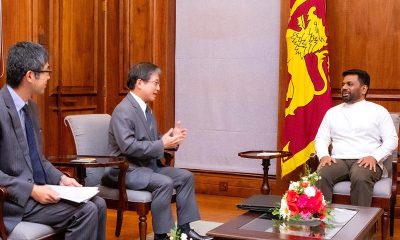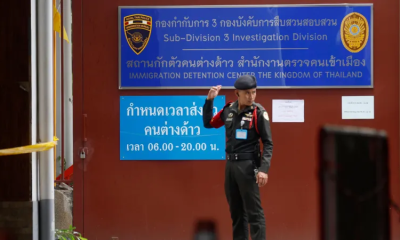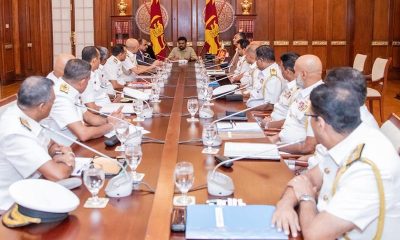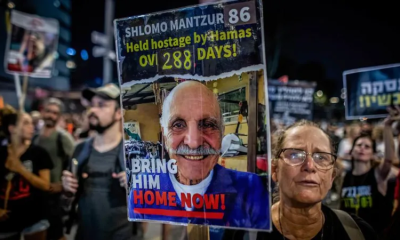News
Opposition demands more slots on Parliamentary Business Committee

Govt. insists on capping its members to ensure functionality
In the previous Parliament, where there were six Opposition parties, 10 slots were allocated for the Opposition at the Committee on Parliamentary Business.
However, there were now 12 Opposition parties represented in Parliament but only four slots had been allocated for them in the same Committee, Chief Opposition Whip, SJB MP Gayantha Karunathilaka told Parliament on Friday (06).
“We met Speaker Ashoka Ranwala Friday morning to discuss this. How can we manage with four slots?” he asked.
Meanwhile, MP Ramanathan Archchuna, representing Independent Group 17 from Jaffna, urged the Speaker to allocate to him at least 30 seconds in each session because the Opposition Leader Sajith Premadasa would not allocate time for him to speak. “As you know I can’t go to his office to talk to him. Please consider my plight and give me some time during each session. Even 30 seconds is enough,” he said.
Opposition leader Sajith Premadasa said the standing orders of Parliament would not be violated by increasing the number of members in the Committee on Parliamentary Business. “This won’t increase expenses. I urge the government to increase the number of Opposition MPs. I can guarantee that the Opposition MPs won’t just try to disrupt,” he said.
Gajendrakumar Ponnambalam of the All Ceylon Tamil Congress (ACTC) said that although he was an Opposition MP, he did not have a working relationship with the main Opposition. Most of the political parties in Parliament only had a single MP, he said. “Standing orders were created when there was effectively a two-party system. These do not accommodate the reality of the present Parliament. The Committee on Parliamentary Business must have at least one member from each party in Parliament,” he said.
Chief Government Whip, Minister Nalinda Jayatissa said the Committee on Parliamentary Business was the most important Committee in Parliament. According to Standing Orders, the Committee should comprise seven ex officio members and 12 other MPs.
“When we increase the non ex officio members to 16, the Committee on Parliamentary Business will have 23 members. I think we have to cap the number at this point. The number of political parties represented in Parliament may increase or decrease depending on the election. The number of parties can go up to 20 even. If we keep on increasing the number of members, we won’t have functioning committees. We can’t have 50 members in the Committee on Parliamentary Business,” he said.
Jayatissa said the Opposition leader and the Chief Opposition Whip are already included in the seven ex officio group. The government has agreed that four other MPs should be included in the non ex officio group. “There are six slots for the Opposition. It’s up to the Opposition to divide these slots among the MPs. If there is a problem with the Opposition not having enough time to express themselves in Parliament, we are willing to discuss and allocate some of our time. However, we urge the Speaker not to increase the number of members in the Committee on Parliamentary Business to more than 23,” he said.
Leader of the House, Bimal Rathnayake said they agree to allocate one more position at the Committee to the Opposition and the Opposition Leader must talk to the parties and appoint an MP. “By default, an additional slot will be given to the government, bringing the number of members in the Committee on Parliamentary Business to 16, excluding seven ex officio members” he said.
Minister Rathnayake said the Committee on Parliamentary Business must not be conflated with the party leaders group. This is also not the only Committee in Parliament. “The Parliament may someday decide that all political parties in Parliament must be represented in the Committee on Parliamentary Business. However, no such decision has been taken. There is an ad-hoc grouping called the party leaders meeting. The Committee on Parliamentary Business can’t accommodate everyone. The Committee is limited to a certain number of experienced, reasonable groups for a reason. The Committee on Parliamentary Business must start and end at a stipulated time. Our opinion is that this Committee must have a limited number of MPs. We can’t accommodate every party. This is the reality. I urge you to accept this reality,” he said.
Given that the Opposition Leader and the Chief Opposition Whip represent the SJB, the other four slots can be given to Ilankai Tamil Arasu Kachchi (ITAK), New Democratic Front (NDF), Sri Lanka Podujana Peramuna (SLPP) and to one other party.
“We have decided to give the Chairmanship of the Committee on Public Accounts (COPA) to an Opposition MP. We have also increased the number of members of COPA. People who can’t enter the Business Committee can join COPA because we think oversight should be increased. However, we will keep the Chairmanship of the Committee on Public Enterprises (COPE) because we need to investigate what the previous government has done. We can’t let a former Minister sit at the helm of COPE,” he said.
Latest News
President Disanayake, Japanese Ambassador discuss bilateral cooperation

President Anura Kumara Disanayake met with Ambassador of Japan to Sri Lanka, H. E.. Akio ISOMATA, this morning (27) at the Presidential Secretariat.
During the meeting, the Ambassador officially invited President Disanayake to visit Japan and expressed appreciation for the new government’s policy framework.
The Japanese Ambassador stated that efforts have been made to include Sri Lanka in the recently launched security cooperation assistance program by the Government of Japan.
Extensive discussions were held regarding the ongoing and future initiatives of the joint Japan-Switzerland-South Africa program aimed at fostering national reconciliation among the northern communities affected by the 30-year conflict. Additionally, they reviewed the current status of Japanese investments in Sri Lanka.
Furthermore, the current status and progress of digital economic and airport investments were discussed. The Ambassador also reaffirmed Japan’s commitment to supporting Sri Lanka’s Digital Transformation Program, emphasizing the Government of Japan’s intention to invest in port and aviation-related projects, as well as digitalization initiatives in Sri Lanka.
The discussion was attended by Advisor to the President on Economic and Financial Affairs Dr. Duminda Hulangamuwa, Senior Additional Secretary to the President Roshan Gamage, First Secretary & Head of Economics and Development Cooperation Section OHASHI Kenji, and First Secretary & Head of Political Section MURATA Shinichi.
News
President meets Senior Naval Officers
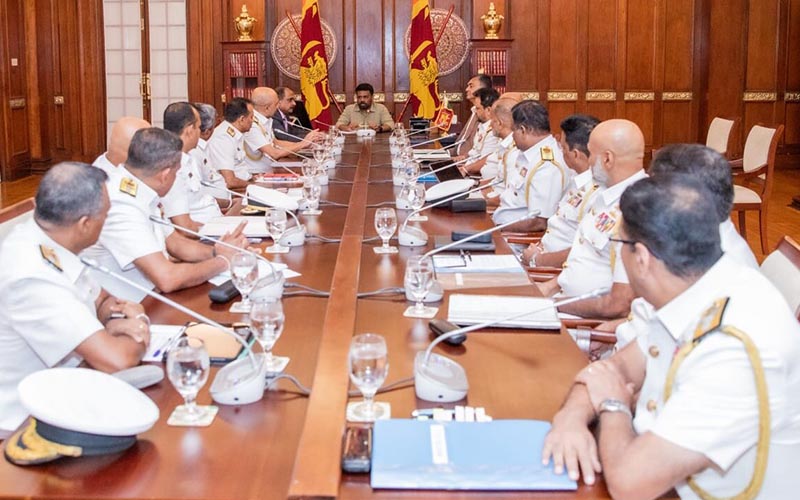
A discussion on Sri Lanka’s current security situation was held on Wednesday (26) at the Presidential Secretariat, under the leadership of President Anura Kumara Disanayake.
During the meeting with senior naval officers, attention was drawn to future security measures concerning the country’s security situation.
Extensive discussions were held on maritime operations conducted to ensure national security, including efforts to curb arms and drug trafficking via sea routes and surveillance missions in deep-sea waters.
Deputy Minister of Defence Aruna Jayasekara, Secretary to the Ministry of Defence Air Vice Marshal Sampath Thuyacontha, Commander of the Navy Vice Admiral Kanchana Banagoda, and several senior naval officers participated in the meeting.
News
Govt. to initiate talks on setting up Truth Commission: FM Herath
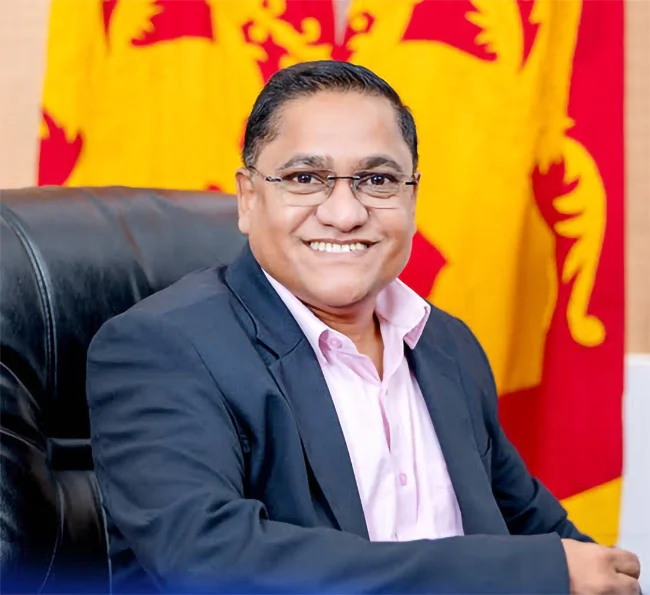
UNHRC Session in Geneva:
The JVP/NPP government has expressed its willingness, at the UNHRC in Geneva to initiate talks on setting up a Truth and Reconciliation Commission to investigate acts of violence caused by racism and religious extremism,
Addressing the High-Level Segment of the 58th Regular Session of the United Nations Human Rights Council (UNHRC) in Geneva, Foreign Minister Vijitha Herath said: “The contours of a truth and reconciliation framework, will be further discussed with the broadest possible cross section of stakeholders, before operationalisation to ensure a process that has the trust of all Sri Lankans. Our aim is to make the domestic mechanisms credible and sound within the constitutional framework. This will include strengthening the work towards a truth and reconciliation commission empowered to investigate acts of violence caused by racism and religious extremism that give rise to tensions within Sri Lankan society.”
“The Government has pledged to take tangible steps in the interest of further advancing national unity and reconciliation. The President has proposed to declare a Sri Lanka Day, in line with our vision for a reconciled Sri Lanka and commitment to bridging gaps between communities. We will ensure that the domestic mechanisms and processes, established to address challenges emanating from the conflict, will continue their work in an independent and credible manner, within the Constitutional framework. Domestic institutions, such as the Office on Missing Persons (OMP), Office for Reparations, and Office for National Unity and Reconciliation (ONUR), will be strengthened,” he said.
Minister Herath reaffirmed Sri Lanka’s commitment to human rights, reconciliation, and sustainable development, highlighting the country’s progress and government’s strategies for continued engagement with the international community.
The government is firmly and sincerely committed to working towards a unified Sri Lanka that respects and celebrates the diversity of its people with no division or discrimination based on race, religion, class and caste. We will not leave room for a resurgence of divisive racism or religious extremism in our country. The fundamental and long standing principles of democracy and freedom enshrined in our Constitution will be fully respected and safeguarded while protecting the human rights of all citizens. Every citizen should feel free to practice their religion, speak their language, and live according to their cultural values without fear or discrimination. No one should feel that their beliefs, culture, or political affiliations will make them targets of undue pressure or prejudice. Administrative, political and electoral processes will be activated towards this end.
A number of confidence building measures have also been taken in the last few months towards reconciliation. In November 2024, a number of roads in the Northern Province, including the Palali-Achchuveli main road, were opened for public use, after several decades. The President, during his visit to the North in January this year, made an open invitation to Tamil-speaking youth to be part of Sri Lanka’s police service. The 2025 Budget includes significant allocations to upgrade the libraries throughout the country, including the historical Jaffna library which is a symbol of education and enlightenment for the Tamil community, he said.
-

 Business4 days ago
Business4 days agoSri Lanka’s 1st Culinary Studio opened by The Hungryislander
-

 Sports5 days ago
Sports5 days agoHow Sri Lanka fumbled their Champions Trophy spot
-
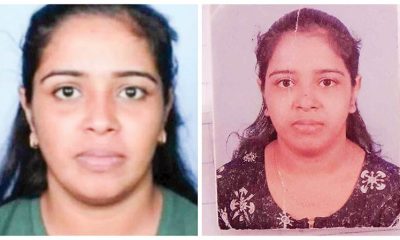
 News7 days ago
News7 days agoKiller made three overseas calls while fleeing
-

 News6 days ago
News6 days agoSC notices Power Minister and several others over FR petition alleging govt. set to incur loss exceeding Rs 3bn due to irregular tender
-

 Features5 days ago
Features5 days agoThe Murder of a Journalist
-
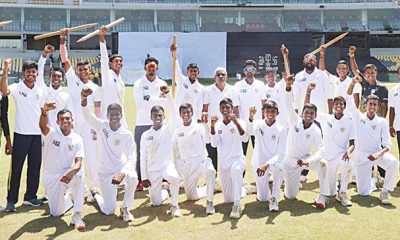
 Sports5 days ago
Sports5 days agoMahinda earn long awaited Tier ‘A’ promotion
-
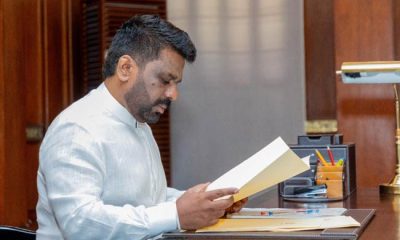
 Features5 days ago
Features5 days agoExcellent Budget by AKD, NPP Inexperience is the Government’s Enemy
-

 News6 days ago
News6 days agoMobile number portability to be introduced in June




